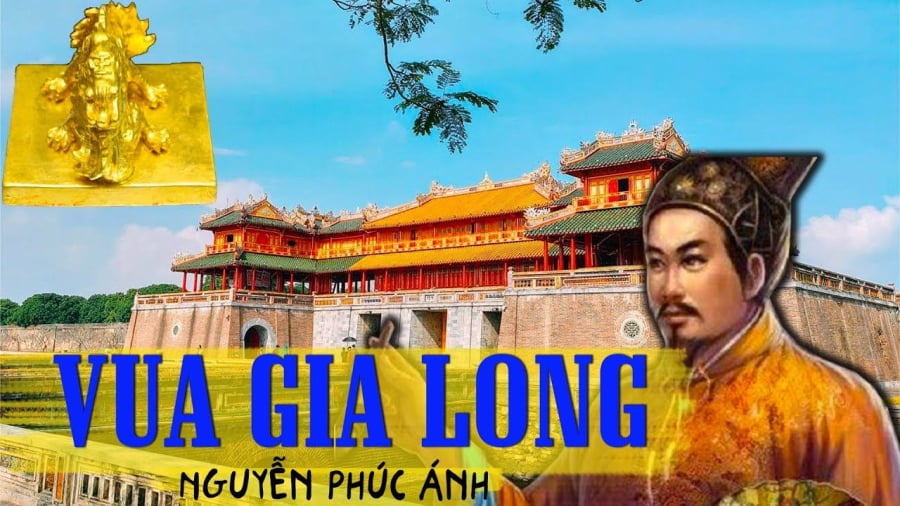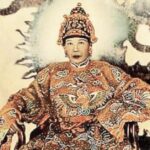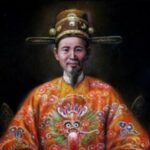Polygamy was a common practice among the monarchs of feudal Vietnam, and some kings had numerous wives and children. This practice served not only as a display of power but also played a strategic role in maintaining dynastic stability and forging political alliances with influential families. The following are some of the kings of Vietnam with the largest number of wives and children in history.
1. King Gia Long (Nguyen Phuc Anh)

King Gia Long (Nguyen Phuc Anh)
King Gia Long, the founder of the Nguyen Dynasty (1802-1820), had at least 50 wives, including several empresses and concubines. He is believed to have had over 30 children, both sons and daughters. His marriages served not only personal purposes but also helped solidify his power and forge political alliances with prominent families within the court.
2. King Minh Mang (Nguyen Phuc Dam)
King Minh Mang, the son of Gia Long, reigned from 1820 to 1841, and followed his father’s footsteps in terms of polygamy. He had approximately 50 wives, including empresses, concubines, and palace ladies. Minh Mang is said to have had over 100 children, many of whom were granted royal titles such as princes and princesses, contributing to the expansion of the Nguyen Dynasty.
3. King Thieu Tri (Nguyen Phuc Thi)
King Thieu Tri, the son of Minh Mang and the third ruler of the Nguyen Dynasty, ascended the throne in 1841 and ruled until 1847. Despite his relatively short reign, Thieu Tri had over 20 wives and a significant number of children, especially princes and princesses. While his number of offspring was not as high as his grandfather’s, he still ranks among the kings with the most children in Vietnamese history.
4. King Duy Tan (Nguyen Phuc Vinh San)
King Duy Tan, who ascended the throne after the deposition of King Thanh Thai, led a rather unique life and is less commonly mentioned when discussing kings with numerous wives and children. Nonetheless, he did have several wives and a considerable number of children, although not as many as the previously mentioned kings.
These kings had multiple wives and children for both personal and strategic reasons, as it helped maintain their power and stabilize their dynasties. Polygamy was not uncommon in feudal Vietnam and was often intertwined with the politics and culture of the time.



































